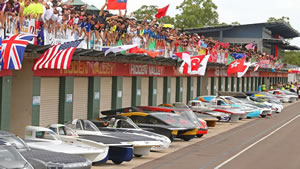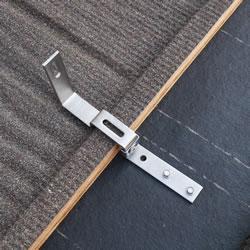Solar-Powered Cars Compete in the Bridgestone World Solar Challenge
 Justin Hughes for The Drive: Sunday marked the beginning of the 2017 Bridgestone World Solar Challenge, a solar-powered car race across Australia. The race begins in Darwin, on the north coast of Australia, and runs 1,880 miles south to Adelaide, on the south coast. This year marks the 30th anniversary of the event. It ran every three years starting in 1987 and every other year since 1999.
Justin Hughes for The Drive: Sunday marked the beginning of the 2017 Bridgestone World Solar Challenge, a solar-powered car race across Australia. The race begins in Darwin, on the north coast of Australia, and runs 1,880 miles south to Adelaide, on the south coast. This year marks the 30th anniversary of the event. It ran every three years starting in 1987 and every other year since 1999.
Needless to say, the technology in these cars has improved significantly over the years. The winner of the 1987 event was the General Motors "Sunraycer," which completed the race at an average speed of 66.9 kilometers per hour (41.5 miles per hour). This was much faster than the second place Ford Australia "Sunchaser," which averaged 44.48 kilometers per hour (27.63 miles per hour), and the Biel College of Engineering entry which averaged 42.93 kilometers per hour (26.67 miles per hour).
In contrast, the top two teams in the 2015 race, the Nuon Solar Car Team's “Nuna 8” and Team Twente's "Red One" both averaged around 91 kilometers per hour (56.5 miles per hour). By 2005, teams were actually being held back by South Australia's 110 kilometers per hour (68.3 miles per hour) highway speed limit, which the cars were now capable of exceeding. Full Article:
Comments (0)
This post does not have any comments. Be the first to leave a comment below.
Featured Product

